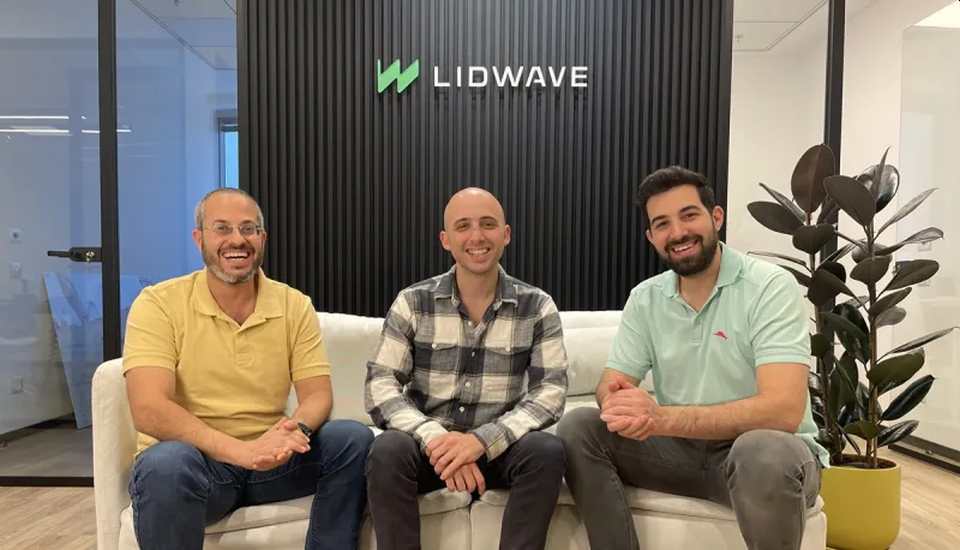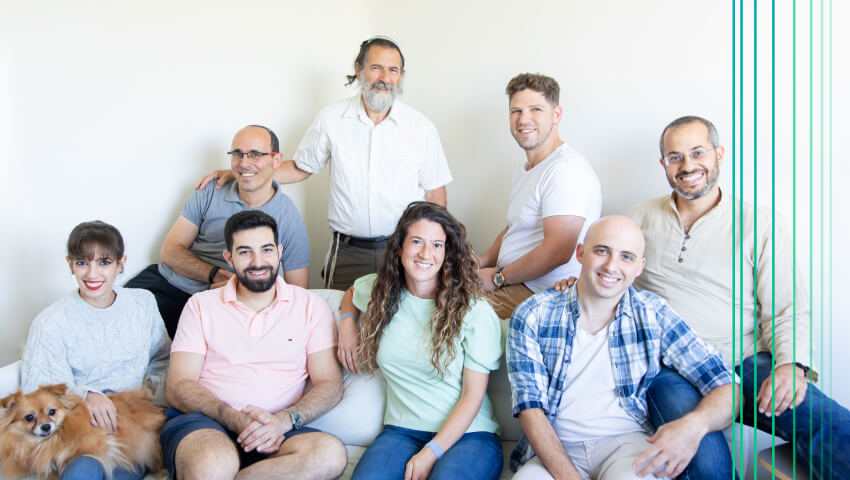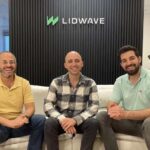Israeli tech startup Lidwave closes $10M in seed funding to transform machine vision with on-chip 4D LiDAR

There’s a strong consensus that LiDAR is key for autonomous machines across various sectors, but its true potential remains limited by high costs, complexity, and reliability concerns. Traditional LiDAR systems are intricate, built from a mix of lasers, detectors, and optical components that drive up costs and make production a long, expensive process.
As a result, top-tier LiDAR units can cost thousands, sometimes tens of thousands, of dollars, preventing broader adoption in industries like automotive, transportation, industrial automation, and traffic management. That’s where Israeli startup Lidwave is stepping in with its new technology, ushering in what it calls LiDAR 2.0: an affordable, mass-market-ready, System-on-Chip LiDAR solution.
Today, Lidwave announced it has secured a $10 million seed funding round led by Jumpspeed Ventures and Next Gear Ventures, with additional backing from a leading Swedish truck manufacturer. The startup plans to use the funds to advance its cutting-edge 4D LiDAR sensor, making the technology more scalable and cost-effective, bringing advanced machine perception to a wider audience.
The funding will also help Lidwave accelerate the development of its optical chip, roll out the industry’s first software-definable 4D LiDAR sensor, and expand its reach. This investment highlights the growing importance of Lidwave’s technology as it works to shape the future of machine vision.
Founded in 2021 by CEO Yehuda Vidal, with co-founders Yossi Kabessa (CTO) and Uri Weiss (Chief Scientist), the Jerusalem, Israel-based Lidwave is transforming 3D sensing by breaking through the core limitations of existing LiDAR technology. Together, they bring deep expertise across physics, optics, electronics, and software to push the next generation of machine vision forward.
Lidwave’s proprietary Finite Coherent Ranging (FCRTM) technology packs all essential components—lasers, amplifiers, receivers, and optical routing—onto a single chip. This integration simplifies production and slashes costs, making high-end LiDAR tech more accessible. Unlike traditional systems, Lidwave’s method provides both velocity and depth data at the pixel level, allowing machines to better understand their environment and make smarter decisions.
“This investment is a major step forward for us as we work to revolutionize machine vision,” said Yehuda Vidal, Lidwave’s CEO. “Our 4D LiDAR chip not only sets a new standard in performance but also makes this technology available to the mass market. We’re excited to have investors who share our vision of improving safety and productivity across industries.”
Dr. Tal Cohen, Founding Partner at Next Gear Ventures, noted, “Over the past decade, we’ve seen tremendous progress in sensor technology, but matching the right cost, quality, and reliability has been a challenge. Lidwave’s innovative technology is the breakthrough the industry has been waiting for.”
Ben Wiener, Founding Partner at Jumpspeed Ventures, added, “LiDAR technology has long held promise, but Lidwave is the first to create a clear path to scalability and widespread adoption. Their 4D chip simplifies the complexities of legacy systems and significantly reduces costs. We’re thrilled to back a company that’s poised to transform industries.”
Other investors in Lidwave’s seed round include Sapir Venture Partners, OurCrowd, Teramips Technologies, Beyond-Electronics, Howard Morgan (MFCIF), and the Israel Innovation Authority (non-dilutive funding). The company is already working with OEMs, Tier-1 suppliers, and key players in industrial automation and smart infrastructure, aiming to scale production and extend its technology into new fields—ultimately saving lives, boosting safety, and driving automation worldwide.
Lidwave’s innovation lies in its 4D sensor-on-chip design, powered by its FCRTM technology, which treats light as a wave instead of using traditional photon counting. This allows for precise measurement of both range and velocity, providing high-resolution data that helps systems better understand their surroundings. The sensor also offers excellent resistance to vibrations, thanks to its monostatic design that uses a single point on the chip for both sending and receiving signals.
By integrating all critical components onto a single chip, Lidwave has drastically cut production costs, making this advanced technology more accessible to industries in need of reliable, high-performance sensors.

Lidwave Team (Credit: Lidwave)




